Iran Has Highest Number Of Digital Stalking In Mideast, Africa: Report

Kaspersky security firm says that among the countries of the Middle East and Africa, Iran is at the top of the list of countries affected by digital stalking.

Kaspersky security firm says that among the countries of the Middle East and Africa, Iran is at the top of the list of countries affected by digital stalking.
Stalkerware is a commercially available software that can be installed on smartphone devices, enabling perpetrators to monitor an individual’s private life without their knowledge.
According to the company's annual report, a total of 1,754 people has been victim of stalking in Iran in 2022. It also adds that the total number of victims of digital stalking in the world in 2022 was 29,312; a number that shows a relative decrease compared to the year before.
The data covers the affected number of Kaspersky users, with the total global number of affected individuals likely to be much higher.
The "Coalition Against Stalkerware" organization estimates the number of victims of these spyware programs to be around one million every year.
Stalkerware can be downloaded and easily installed by anyone with an Internet connection. A perpetrator can use the software to monitor huge volumes of personal data and check device location, text messages, social media chats, photos, browser history and more.
Russia has the highest number of victims of spyware in the world with 8,281 cases, followed by Brazil with 4,969 and India with 1,807 victims.
In this way, Iran is the fourth country with the most victims of spyware in the world.
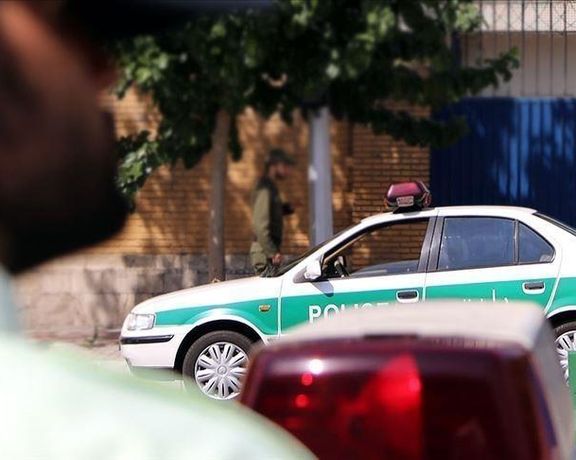
Reports from Iran say two police officers have been gunned down in Iran's protest-hit southeastern province of Sistan and Baluchestan.
The attack occurred in a region called Golshan on Friday. However, no information has been published about the identity of the assailants, their possible arrest or their motives.
Local media identified the two officers as Mohsen Pudinei and Ehsan Shahraki who were shot "while carrying out a security mission regarding Friday prayers".
The government has been trying to contain protests in the province on Fridays following weekly prayers.
State news agencies say the attack was carried out by “armed thugs”. The term is a vague description that officials use to refer to armed people affiliated with political groups opposed to the regime and sometimes drug traffickers.
After the "Bloody Friday" of Zahedan, the cities of Sistan and Baluchistan have been the scene of massive street protests every Friday after prayers.
The Bloody Friday in Zahedan, the provincial capital of Sistan-Baluchestan took place September 30, when security forces killed at least 93 people, and injured hundreds more during antigovernment protests.
No one has been arrested and prosecuted for shooting protesters in the province.
In recent months, pressure on the people of Sistan-Baluchistan has increased, and the situation in various cities has been described as very tense, especially on Fridays.
Amid tensions, the commander of the police force of this province was changed on February 27 for the second time since the beginning of the protests following the death of Mahsa Amini in police custody.

Israel was not taken by surprise when Iran and Saudi Arabia agreed to revive ties, a senior Israeli official told Iran International, amid criticism by the opposition.
The official who requested anonymity was accompanying Prime Minister Benjamin Netanyahu during his trip to Italy on Saturday. He insisted that the Israeli government knew about the talks between Tehran and Riyadh “for a long time” and was following the process.
The official said that Saudi Arabia’s decision to re-establish diplomatic ties with Iran, severed since 2016, will not have an impact on the chances of Israeli-Saudi relations.
The Netanyahu government and President Joe Biden’s administration have been trying to expand the 2020 Abraham Accords to include Saudi Arabia, which has been holding out, making demands both on Israel and the United States.
However, since the news of the Iranian-Saudi deal broke on Friday, many commentators have seen the development as a win for China that brokered the agreement.
The Wall Street Journal in an editorial blamed Biden and the Democrats for annoying the Saudis and pushing them into China’s arms. The Journal said, “the symbolic import is hard to miss as Democrats in Washington do everything they can to harass and annoy the Saudis,” adding that getting a cold shoulder from Washington Riyadh decided to “hedge” its bets.
The Israeli official also said that in case of a decision to attack Iran’s nuclear facilities, Israel “is neither dependent on anyone, nor waiting for anyone’s permission.” However, he added that Israel will be happy with US political and military support and backing from European countries.
Former Israeli Prime Minister Naftali Bennett has described the resumption of ties between Tehran and Riyadh as harmful to chances of bringing Saudi Arabia into the Abraham Accords, saying that it is a serious defeat for Netanyahu.
Netanyahu faces serious opposition at home for his domestic policies and his critics charge that because of his entanglements at home, he missed the Saudi-Iranian rapprochement.
The senior official agreed that Israel’s internal crisis impacts its confrontation with the Islamic Republic and for this reason the political row should be ended as soon as possible.
Some Israeli media argued that the resumption of diplomatic relation will not dampen Saudi Arabia’s opposition to the Shiite regime in Iran and Riyadh remain open to joining the Abraham accords.
The Wall Street Journal and the New York Times reported this week that Saudi Arabia is demanding concessions from the Biden administration to join the peace accords with Israel. It wants US assistance in developing a nuclear power industry and less restrictions on arms sales to the kingdom. Many see the Chinese-brokered deal with Iran as further pressure by Riyadh on both the United States and Israel.
Some Israeli media have also reported that Saudis want Israel’s help in securing their demands from Washington.
Saudis have long said that formal diplomatic relations with Israel depend on a peaceful resolution to the Israel-Palestine conflict, though the two have been conducting business and security cooperation behind closed doors for some time. Saudi also opened its air space to Israel, in the wake of the Accords, signed in 2020.
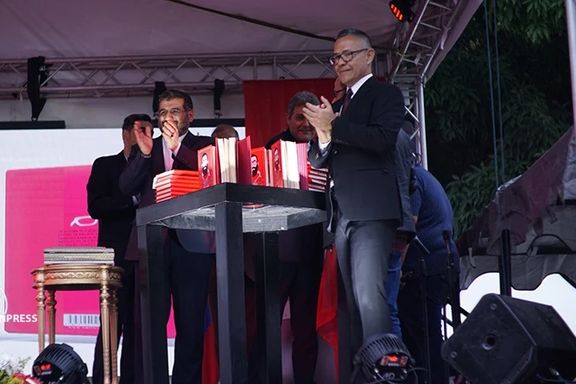
In order to expand the Islamic Republic’s influence in Latin America, a Spanish translation of a book by Iranian Supreme Leader has been unveiled in Venezuela.
The book titled "Cell No. 14” is memoirs Iran's authoritarian ruler Ali Khamenei that was unveiled on the sidelines of the Iran-Venezuela culture and friendship exhibition in Caracas on Friday.
The book covers the first half of Khamenei's life when he was a religious opponent of the secular monarchy, from his early years until the 1979 revolution. It also contains illustrations portraying different periods of his life.
In a message on the occasion, Khamenei told Venezuelans that “It is good that you and all justice-seeking nations get to know each other more and cooperate more.”
Iran has been running overt and covert operations to build influence and networks in Latin America, together with its proxies, such as the Lebanese Hezbollah.
Tehran has made plenty of economic promises to the region’s countries, but few have materialized because the period since has been marked by crippling international and US sanctions on Tehran.
Secret Iranian and Hezbollah networks are involved in illicit activities, allegedly including the drug trade for generating funds.
Iran also converts locals to Shiite Islam and sends some to its seminaries in the religious city of Qom to be trained and indoctrinated.
The presence of the Islamic Republic in Latin America has been a growing concern for the US in recent years with several Congressional reports presented in different Senate and House committees detailing Iran’s influence in the region.
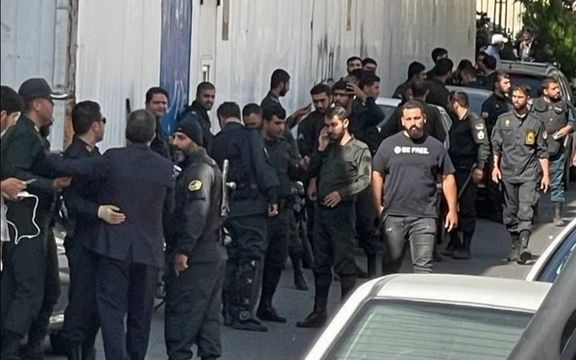
The UN special rapporteur on human rights in Iran has released his latest report, portraying the grim situation of protesters and the regime’s bloody crackdown.
In his latest report released to media on Friday, Javaid Rehman briefed the UN human rights council at its 52nd session on the events leading up to and since the death of Jina Mahsa Amini in September, highlighting the most pressing human rights concerns up to December 31.
Rehman expressed regret that the Islamic Republic authorities continue to deny him entry to the country and reiterated his request to carry out visits to the country in accordance with the Human Rights Council resolution establishing his mandate.
The Special Rapporteur deplored the brutal response of the Iranian authorities to the protests, saying the unabated violent response by security forces reportedly led to the deaths of at least 476 persons, including at least 64 children and 34 women, 5 hundreds of protesters being severely injured and thousands being arrested, detained or incarcerated.
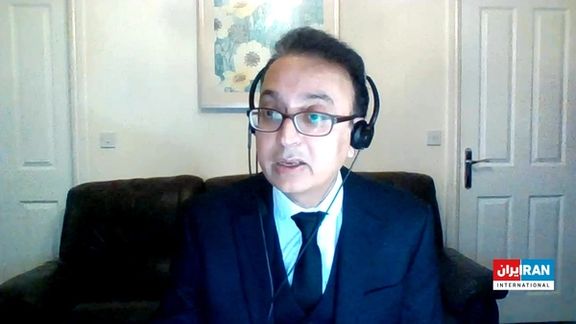
His report is derived from many submissions and multiple online and in-person meetings with victims of the human rights violations, their families and lawyers, civil society and human rights organizations, government officials, media and other relevant stakeholders.
“The violent state response to the protests started immediately following the death of Jina Mahsa Amini, contrary to the reports by Iranian authorities, which claim that security forces were instructed to act with tolerance and restraint,” read the report, adding, “On the contrary, directions given by the highest state authorities point out a deliberate policy to crush protests at all costs.”
“Videos, reports and eyewitness testimonies have shown security forces (including the police, the Islamic Revolutionary Guard Crops and the Basij militia) violently cracking down on protesters and have revealed a widespread pattern of unlawful lethal use of force, including the use of shotguns, assault rifles and handguns against the protesters,” it added.

The report also said that there is evidence of deliberate killings in many cases, with security forces shooting at individuals at close range. It mentioned Minoo Majidi, a 62- year-old mother, who was shot by security forces with 167 shotgun pellets in Kermanshah and died on her way to hospital and Hadis Najafi, a 23-year-old woman who died during a protest in Karaj on September 21 after being shot multiple times in the heart, abdomen and neck.
Highlighting that at least 64 children were reportedly killed by security forces in the protests, the report mentioned some of the cases such as four girls and one boy who were beaten to death, including two 16-year-olds, Sarina Esmailzadeh and Nika Shakarami and 15-year-old Sarina Saedi from Sanandaj and a 16-year-old boy Mehdi Mousavi Nikou.

Ethnic and religious minorities who have suffered decades of systemic and systematic discrimination and persecution have been disproportionately affected in the current wave of repression with over half of the total number of those killed being from Baluchi and Kurdish-populated provinces, the report said, noting that children from the country’s Baluch and Kurdish minorities constitute 63 percent of the recorded child victims.
Expressing concern over the large number of protesters severely injured because of direct shots to the head, Rehman said that hundreds have reportedly suffered severe eye injuries or lost their eyesight due to the use of metal pellets and rubber bullets by the security forces but did not seek medical care from government facilities in fear of reprisals, torture and detention.
The Special Rapporteur also expressed deep concerns about the policy of mass arbitrary arrests and detention of protesters, that led to the arrest of more than 18,000 individuals, of whom the identity of 2,942 individuals has been confirmed.
The report also underlined the harassment of families and cover up of human rights violations and violations of the right to due process and fair trial. “The Special Rapporteur is alarmed at the execution of two protesters and the reported sentencing to death of several others after sham trials, violating the right to a fair trial and denying the right to due process,” it said.
Paying tribute to all those who have continued to communicate information despite the heavy risks, Rehman said the regime’s so-called investigations into the death of Mahsa Amini were neither credible nor transparent and have failed the minimum requirements of impartiality and independence.
The report concluded that since the start of the protests, the highest authorities of the regime have instigated violence and instructed the security forces to “confront the enemies”.
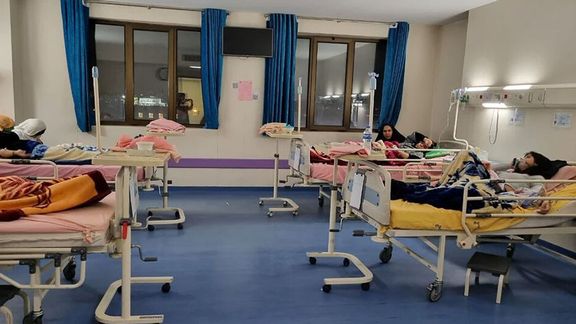
Iran's state television aired the so-called ‘confessions’ of a man and his daughter arrested and accused of attacking schools in southern Iran with N2 gas canisters.
The video first shown by the local channel of the state broadcaster (IRIB) in Fars Province in southern Iran showed a girl sitting with her back to the camera being interrogated by a man. Authorities routinely arrange for forced confessions on TV.
The girl says in the video that she obtained the nitrogen gas canisters from a friend and together with her father, a hospital worker, threw them in the courtyards of seven different schools and went to hospitals to film the victims to post the videos as Instagram stories and posts.
For three months, girls’ schools have been targeted by unknown people with some kind of chemical agents, sending hundreds of students to hospital. The government has not arrested the real culprits of the large-scale operation.
Authorities who initially tried to attribute the children’s illness to psychogenic factors have so far not released any details about the chemical agents used in school attacks across the country, which some poisoned students have described as smelling like putrid fruit, or shown any canisters or other vessels used for holding these chemicals.
Many ordinary Iranians have been suspicious of involvement of the regime itself, or religious extremists protected by the regime, in the school attacks and call the acts “state terrorism”.
IRIB news bulletin including forced statements of a young woman arrested for school attacks in Larestan
“I tagged Iran International TV,” the unnamed girl tells her interrogator in the video shown by the state television and claims that by reporting the incidents she wanted to cause negative feelings about the regime in people’s minds.
On Monday, for the first time since the first attack Supreme Leader Ali Khamenei addressed the issue. “If there are really hands at work, or individuals or groups that are involved in this, this will be a huge crime that cannot be overlooked,” he said, adding that culprits should be given maximum punishment for their crime.
The interior ministry in a statement Wednesday said some individuals had been arrested in Khuzestan, West Azarbaijan, Fars, Kermanshah, Khorasan and Alborz provinces. No one has yet been arrested in the religious city of Qom, where the first attack was reported on November 31. Since then, 29 more schools have been attacked in the same city.
Victims of school gas poisoning attacks outside a school in Larestan Monday
Spokesman of Law Enforcement Forces (Faraja), Brigadier General Saeed Montazerolmahdi, said Friday that a team of two men, 50 and 22, and three girls including a 21-year-old who still attended high school, were arrested for the poisonings in Larestan, for which the girl was made to confess on television.
The police chief alleged that the accused had also made recordings of the school attacks and sent it to “hostile media including Iran International TV”. He claimed that the accused girls confessed they wanted to create an atmosphere of insecurity in schools and defame the Islamic Republic.
On Thursday the head of the justice department of Kordestan Province, Seyed Hossein Hosseini, said authorities had arrested five “leaders and top members of networks” involved in “spreading rumors and lies” and arrest warrants were issued.
Instead of arresting the perpetrators, the police has been detaining journalists and citizens for speaking out about the chemical attacks.
The Revolutionary Guards (IRGC) linked Tasnim News Agency also reported on Friday that an Instagram influencer with 700,000 followers was arrested in Urumieh.
Quoting unnamed “informed sources, Hamshahri Online said the influencer was arrested for “spreading rumors about students’ poisoning” and causing feelings of apprehension among citizens through Instagram stories.